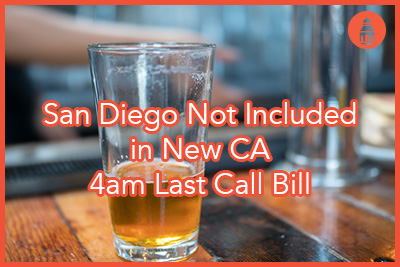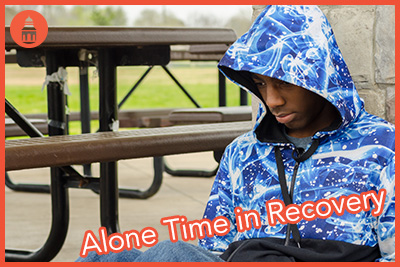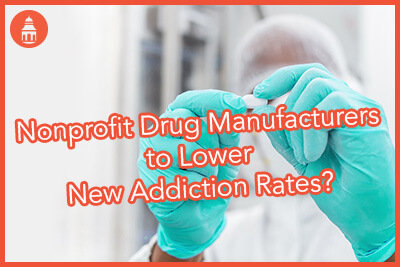The stories of families who have lost loved ones due to opiate use and addiction are prolific and heartbreaking. Young people who passed because they did not realize the power of the medications they were taking. Older people who accidentally mixed up their dosing schedule and took too much or combined the wrong medications. People of all ages who got into a car accident or otherwise suffered a fatal accident while under the influence.
It is a problem that is ongoing in our country. It started with the over-prescribing of addictive painkillers and has now shifted to include a tremendous upswing in heroin use in addition to continued abuse of opiate medications.
The good news is that people have taken notice of the problem and are making a strong effort to get the problem under control – especially in the medical community. The even better news is that those measures are working where they are implemented regularly.
Prescribing Physicians
Fixing the issue of over-prescription of painkillers began with helping well-meaning doctors to better understand the nature of opiate addiction – and to identify and shut down those prescribers who were taking advantage of the demand for painkillers by turning it into a money maker venture rather than prescribing for the purposes of healing and pain relief. Federal investigators ferreted out the illegal “pill mills” that were one part of the problem, and responsible prescribing doctors as a whole took measures to make sure that their patients were protected by:
- Educating themselves on the complex nature of opiate painkiller use, abuse, and addiction to better identify signs of addiction in chronic pain patients
- Educating patients, old and new to painkillers, about the risks of taking these drugs
- Implementing and making use of statewide – and in some cases, interstate – prescription drug databases to avoid the problem of multiple physicians prescribing drugs to a single patient that have negative interactions
- Adhering to new guidelines that require more frequent medical appointments for patients taking hydrocodone-based medications
- Working to make sure that painkiller doses are as low as possible and prescription timeframes are as brief as they can be by recommending holistic pain management
Each of these changes has been helpful in not only limiting the number of new cases of painkiller addiction but also in identifying patients who may be fraudulently getting addictive pills in order to maintain an ongoing addiction.
One study published in JAMA Internal Medicine found that, since the Drug Enforcement Administration (DEA) changed the classification of hydrocodone to a Schedule II drug and thus tightened up the regulations concerning its prescription and use, approximately 1 billion fewer hydrocodone-based medications were dispensed and more than 26 million fewer prescriptions were written. These changes required that patients would have to get a new prescription after taking a hydrocodone-based medication for 90 days.
Christopher Jones, PharmD, was lead researcher on the study. He told MedPage Today: “I think when we look back on this 10 or 20 years from now, we’ll see this was a very important policy change — maybe one of the most effective federal interventions to control the opioid addiction crisis. A billion fewer hydrocodone combination pills in circulation is a billion fewer pills that people might have consumed. That means we’re reducing the exposure to a highly addictive drug.”
Emergency Room Admissions
Though significant progress has been made against the opiate addiction epidemic in terms of painkiller prescription abuse and addiction, there is still a rampant problem with continued use of painkillers and steadily increasing use and abuse of heroin, also an opiate drug.
In the emergency room, medical professionals see the devastating toll that opiate abuse can take in the form of accidental overdose, accident under the influence, and other medical emergencies caused by use of these drugs. They also see patients who come to the ER in hopes of getting more pills to manage an opiate addiction, often not realizing that the person is drug-seeking rather than legitimately struggling with a chronic pain issue until it is too late.
Some states are working to remedy this problem by putting mandatory limits on prescriptions for painkillers in the ER setting into place. For example, Massachusetts recently approved a bill that would limit the supply of a first-time prescription for painkillers to seven days and require that all patients who go to the ER due to an overdose come back for an evaluation within 24 hours.
The Role of Health Insurance Companies
Even health insurance companies are recognizing that painkiller addiction and abuse are serious issues. There’s real financial savings in connecting people who are living with addiction with treatment that will help them heal, especially for the insurance company that would have to otherwise pay for addiction-related medical costs. In some cases, insurance companies are even considering assigning social workers to clients who are struggling with opiate addiction, according to NPR. If this change goes through, there is one more agency actively working in the best interest of the person living with addiction, increasing the chance that that person will be able to stop using substances and avoid the risks related to opiate use and abuse.
What Do You Think?
Is the medical community doing enough to combat the problem of opiate abuse and addiction? What else could be done, and who should be doing it? Leave a comment and share your thoughts.



